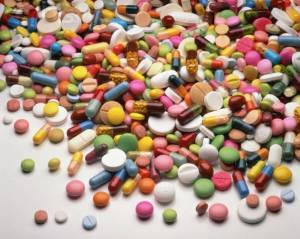 BY JEFF LUSTGARTEN — Hawaii is at the forefront of national efforts to address a significant public health and safety challenge: the proper disposal of household pharmaceuticals.
BY JEFF LUSTGARTEN — Hawaii is at the forefront of national efforts to address a significant public health and safety challenge: the proper disposal of household pharmaceuticals.
Until recently, most believed that the best ways to dispose of unused medications was to either flush them down the toilet or throw them in the garbage. We now know that these practices can have significant negative environmental consequences. Pharmaceuticals cannot be captured with the current technologies employed by most wastewater treatment plants. Similarly, drugs disposed of at our nation’s landfills are finding their way into drinking and irrigation water supplies. Nearly 80 percent of rivers recently tested by the U.S. Geological Survey (USGS) contained trace amounts of pharmaceuticals, including antibiotics, steroids, hormones and contraceptives. Although the effects on human health have not yet been fully determined, adverse impacts on animal and plant life have clearly been seen. Earlier this year, it was reported that 80 percent of the male fish in the Potomac River are exhibiting female traits because of contraceptives and other pharmaceuticals found in the river, and a USGS study conducted last year found intersex fish in one-third of the 111 rivers they tested.
In addition to environmental challenges, we have a parallel challenge when it comes to the growing abuse of prescription drugs by our youth, a problem only worsened by the fact that many parents don’t know what to do with their unused medications. According to the Partnership for a Drug Free America, the average age of children when they start abusing prescription drugs is 12. Furthermore, 20 percent of high school students are known to have abused various prescription drugs such as pain killers. The simple fact is that prescription drugs are abused far more frequently than illicit drugs because they are found in almost every home. It is therefore not surprising that 70 percent of the children who admit to abusing prescription drugs say they got the drugs from family or friends.
So what can we do to address these alarming challenges? Fortunately, Hawaii is confronting these issues head-on and setting an example for the rest of the country. A series of community drug take-back events will be held throughout the state over the next couple of months. These events are being held as part of a national drug take back program being overseen by the Drug Enforcement Agency. In Honolulu, a collection event will be held on September 25 at Longs Drugs Moliili (2220 S. King St.) from 10:00 a.m. to 4:00 p.m.
We also now know the best method of properly disposing of unused household pharmaceuticals, and we have the means to do so in Hawaii. The U.S. Office of Drug Control Policy recently issued new guidelines recommending collection via community drop-off programs, followed by destruction via controlled combustion as the best method of disposal.
The HPOWER Energy-from-Waste facility, operated by Covanta Energy, is offering free disposal of household pharmaceuticals collected during community drop-off events this year. This is being done as part of a program that launched earlier this year in which Covanta is offering to accept pharmaceuticals collected in this manner to be disposed of at no charge.
Collaboration amongst the law enforcement, medical, water and waste management sectors is essential to addressing this issue. But perhaps the most important factor in the success of these efforts will be a significant increase in the public’s awareness of the dangers of improperly disposing of unused medications, as well as willingness on the part of Hawaii’s residents to participate in these drop off events so they become part of the solution.
Jeff Lustgarten is Director of Environmental Science and Community Affairs for Covanta Energy. For more information about the DEA drug take back program and details regarding the Honolulu collection event and other upcoming collection events taking place in a community near you, visit www.hawaii.gov/ag.

